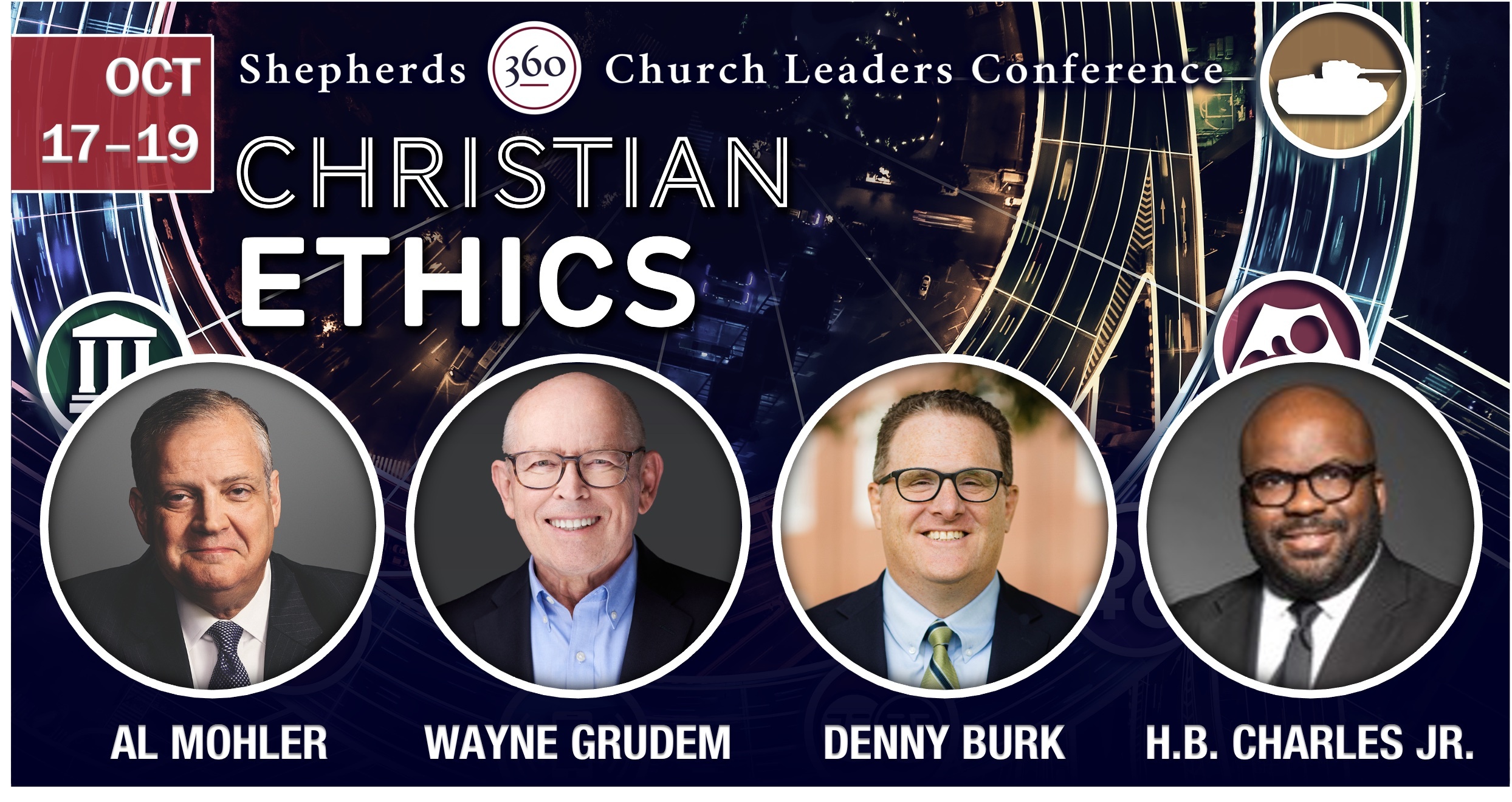The New Testament is explicit that a day is coming when believers “must all appear before the judgment seat of Christ” (2 Cor 5:10). There could hardly be a more sobering reality. Indeed, Daniel Webster is remembered as stating, “The greatest thought that has ever entered my mind is that I will have to stand before a holy God and give an account of my life.” The reality of that day of accounting is often appealed to in the Scriptures, both as an incentive to godliness and growth and as a warning against carelessness and spiritual sloth. It behooves the believer to contemplate carefully all that God’s Word has to say about that day.
A Summary
Much of what the Bible has to say about that day of judgment is clear and unambiguous. The following is offered as a summary of those clearly established elements of the doctrine.
Time. Christ will judge the living and the dead “at his appearing” (2 Tim 4:1; cf. Matt 16:27; Rev 22:12; Luke 14:14; 1 Cor 15:23). More specifically, Rev 19:8 indicates that when the Lord Jesus descends in glory at the close of the Tribulation period, the bride has already been rewarded. (In the phrase “righteousness of the saints” [KJV], the noun is plural, indicating that the reference is to “the righteous acts of the saints” [NKJV]. The reference is not to imputed righteousness, but to those elements of the believer’s life and service which have been tried in the fire and found acceptable, and with which the bride adorns herself in the triumphal march to the marriage banquet.) Thus, the judgment seat occurs in the heavenlies during the interim between the rapture of the saints (1 Thes 4:13-18) and the descent of the Lord Jesus in glory (Rev 19:11-21).
Participants and Purpose. The New Testament is explicit that the “judgment (bēma) seat of Christ” is exclusively for believers. This is made manifest in the allusion to the bēma seat. In the world of the New Testament, the bēma was a raised platform, usually mounted by steps, used to make public pronouncements and to award prizes. In the Grecian games, the umpire or referee sat on a bēma seat, and from that seat he rewarded those contestants who had run so as to obtain the prize (1 Cor 9:24). That seat could be a judicial bench (Acts 18.12), but Paul employs the term in its more prominent social sense referring to a prominent elevation from which honor of various sorts – political, athletic, civil – was awarded or withheld by a presiding official (2 Cor 5:10; Rom 14:10).
Thus, the issue at the judgment seat of Christ is not the eternal destiny of those being “judged.” The individual’s “works” are the basis of judgment there (1 Cor 3:12-15; Rev 2:23). But salvation is not related to any works done by the individual (Eph 2:8,9; Titus 3:5); it is a matter of personal faith in the finished work of Jesus Christ, and it results in a standing of perfect righteousness before a thrice holy God (Rom 4:4,5). With reference to eternal salvation, Jude asserts that God is able to present us “faultless before the throne of His glory with exceeding joy” (Jude 24). On the other hand, the issue at the judgment seat of Christ is the awarding or withholding of “rewards” (Matt 5:12; 6:4; 10:41; 16:27; 1 Cor 3:14; 2 John 1:8; Rev 11:18; 22:12); in this regard, there will be those who will “suffer loss,” who will be saved “as by fire” (1 Cor 3:15, suggesting narrow escape from the flames), and who will be “ashamed at his coming” (1 John 2:28).
Identity of the Judge. The Lord Jesus asserted that the Father had committed all judgment to Him (John 5:22). The apostles acknowledged Him as “the righteous Judge” (2 Tim 4:8), “ordained of God to be the Judge of the living and the dead” (Acts 10:42), who will do so “without respect of persons” (1 Pet 1:17; cf. Jn 5:26-27; Isa 11:1-3) and in perfect truth (Heb 4:13; Rom 2:16; cf. Luke 12:3; Pro 15:3). Indeed, He alone is perfectly qualified to sit in judgment. By reason of who He was from eternity, He can judge with perfect authority. And by reason of who He chose to become when He emptied Himself, became obedient to the point of death (Phil 2:7-8), and thus “learned obedience by the things which He suffered” (Heb 5:8), He can judge with perfect sympathy.
The Basis of Judgment. The criteria of judgment are most specifically defined in 2 Cor 5:10, where Paul states that “we must all appear before the judgment seat of Christ, that each one may receive the things done in the body, according to what he has done, whether good or bad.” The verse affirms that the purpose of the bēma seat is that the real heart of each believer might be revealed (the verb “appear” means “to be made manifest, laid open for all to see”). The term translated “bad” in this verse is unusual; it denotes not moral corruption or intrinsic evil, but that which is useless, vile, hopelessly good-for-nothing. In his earlier epistle to the Corinthians, Paul characterized such valueless works as “wood, hay and stubble” which would be certainly consumed by the fire of divine scrutiny (1 Cor 3:11-15), and he contrasted such works to “gold, silver and precious stones” which would be refined by such a fire. The point is that some works, though superficially noble and selfless, will be demonstrated at the judgment seat of Christ to have been born of wicked motives, animated by the desire for self-aggrandizement, and/or empowered by fleshly devices (1 Cor 4:5). These will be discarded as worthless and ignoble.
In this regard, there is some confusion as to whether the believer’s unconfessed sin will be displayed at the judgment seat. Might a mammoth movie screen be stretched across the heavenlies so that an astonished world can sit and watch as all the wicked thoughts and deeds done in the secret of a man’s heart and life are replayed as a means of judgment? Absolutely not! God has declared that the sins of a believer have been forgiven and forgotten (Ps 103:12) and that He will remember those sins no more (Heb 10:17). But let there be no pernicious solace in this for the careless Christian. Such wickedness in the mortal life of a believer will produce shame (1 John 2:28), but not because the deeds will be rehearsed before a leering multitude. Rather, there will be shame because of the lost opportunity to serve and honor the Redeemer, an opportunity which once squandered can never fully be regained (Luke 19:20-26).
Some have found a limited number of specific criteria for judgment in the “crowns” which are identified in the New Testament: (1) the incorruptible crown, for those who run the race of life acceptably (1 Cor 9:25); (2) the crown of life, for those who resist temptation (James 1:12); (3) the crown of rejoicing for those who reach men for Christ (1 Thess 2:19); (4) the crown of righteousness for those who anxiously await the coming of Christ (2 Tim 4:8), and the crown of Glory for the faithful undershepherd (1 Pet 5:4). The word for “crown” in each of these passages is stephanos, the victory wreath given either to signify victory in the games (1 Cor 9:25), or as a public honor for some distinguished act of courage. Such a crown is not valuable in itself; it is precious and to be prized because it testifies to the delight of the judge who awarded it. This is in contrast to a diadem (also translated “crown” in most English versions; cf. Rev 19:12), which bespeaks a kingly crown. The crowns which are promised to the faithful believer, which are seen on the heads of the worshipers surrounding the throne of Yahweh (Rev 4:4), and which those worshipers ultimately cast before the throne of the Lamb (Rev 4:10) are stephanoi, laurel wreaths granted faithful believers by a righteous and loving Judge.
A Difficulty
For many Christians, the concept of the judgment seat presents a bit of a difficulty. It seems to many that the concept of striving for rewards–of struggling toward maturity for the sake of being honored and rewarded at the bēma –is intrinsically and irretrievably self-serving, and thus an ignoble and unbiblical notion. I would respond to such a concern with three simple propositions.
First, the Bible is explicit that there will be a day of accounting, that some will receive rewards while others will suffer loss (i.e., not receive rewards they might have received, 1 Cor 3:14-15). Furthermore, rewards to be distributed on that day are appealed to many times as an incentive to faithful Christian living (Matt 5:12; 6:4; 10:41; 16:27; 1 Cor 3:8; Col 2:18; 3:24; Heb 11:26; 2 John 8).
Second, the issue at stake is not competition, but faithfulness (1 Cor 4:2). Those running this race are not competing against one another; they are struggling against a common enemy determined to frustrate every attempt to run according to the rules (1 Cor 9:27; 2 Cor 4:4). It is perhaps confusing to press the metaphor of athletic competition overmuch. One believer does not strive to defeat another; there is no joy taken in the fall of a brother runner; the object of the race is not to excel beyond all others, but to please the One who will sit on the bēma seat at the conclusion of the event.
Third, the reward which is sought by the believer is not a bauble to be displayed in some celestial trophy case; it is a greater capacity to serve and honor God in the Kingdom to come. This is suggested in Revelation 4:10, where the victor’s crowns are being cast at the feet of the Lamb; clearly the crowns are not for the glory of the recipient, but for the glory of the Giver. Further, Jesus made this point directly in the parable of the nobleman and the stewards (Luke 19:11-27). The faithful stewards were not given trophies to display; they were given charge over a number of cities (19:17, 19).
The popular misconception of heaven as a place of uninterrupted indolence and slumber contributes to the frustration which arises from the perceived selfishness of any sort of reward program. If the eternal life promised to the believer is only a place to parade his medals, it is hard to conceive of any selfless reason for desiring or striving after those medals. But in fact, the life to come is a busy, productive kingdom, ruled over personally by Messiah Jesus. Faithfulness in this life will produce maturity and selflessness, and thus qualify a person for greater responsibility in the life to come. Once sin is removed root and branch from the human experience, there will be no jealousy or resentment, but there will be various capacities to serve and thus to honor the King. A true heart of love for that King will cause His subjects to long for and strive toward the greatest measure of such a capacity that he might possibly possess. Thus, the longing to be unashamed at the coming of the King, to receive bountifully from His hand at the Bema Seat, may be regarded as entirely noble and ultimately selfless.


